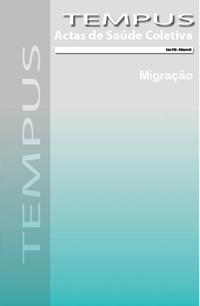Abstract
Abstract: Nowadays, human mobility is one of the major challenges for global health. In 2017, voluntary and forced migrants were estimated 258 million. Access to health care affects both the migrant’s health and the host society, being a central issue on universal access in multilateral forums such as the World Health Organization. Aiming to contribute to the debate, the formulation of public policies and future studies, this article makes a narrative review of the literature on the interrelationships between migration and health, its legal aspect in the international and national scope and what means access in this context of super-diversity. We identified that the migratory process negatively impacts the physical and mental health of the migrant by accentuating vulnerabilities and increasing the exposure to risks. In Brazil, even with the government's withdrawal from the Global Compact for Migration, we conclude that access to health care is granted by various legal provisions such as the Federal Constitution of 1988, the Unified Health System Law and the Migration Law. However, studies evaluating the effectiveness of the law are recommended. Finally, we revisit several approaches on the concept of access and recognize that in order to evaluate access, formulate targeted or inclusive policies and for future research, the concept or approach of access should encompass the specificities of migrant and refugee populations.
Key words: Health Services Accessibility, Emigration and Immigration, Migration and Health, Brazil.
A Tempus garante critérios rigorosos, por meio de avaliação sistemática. Os autores se responsabilizam pela veracidade e ineditismo do trabalho cabendo a eles a cessão de direitos de publicação à revista. A confiabilidade dos conteúdos e a marca própria de apresentação tem como objetivo uma comunicação personalizada, adaptada aos padrões da revista, na medida em que adota critérios de excelência exigidos por seus usuários e especialistas, considerando os rigores da comunicação científica. Os autores devem especificar sua contribuição individual na concepção, delineamento, execução do trabalho, análise ou interpretação dos dados, redação e aprovação final do manuscrito. Incluir Fontes de financiamento e de apoio logístico das pesquisas. Ao final da submissão do artigo, os autores devem enviar uma declaração de cessão de direitos de publicação à Revista TEMPUS , assinada e no formato PDF (Portable Document Format ): Modelo da declaração de cessão de direitos.
